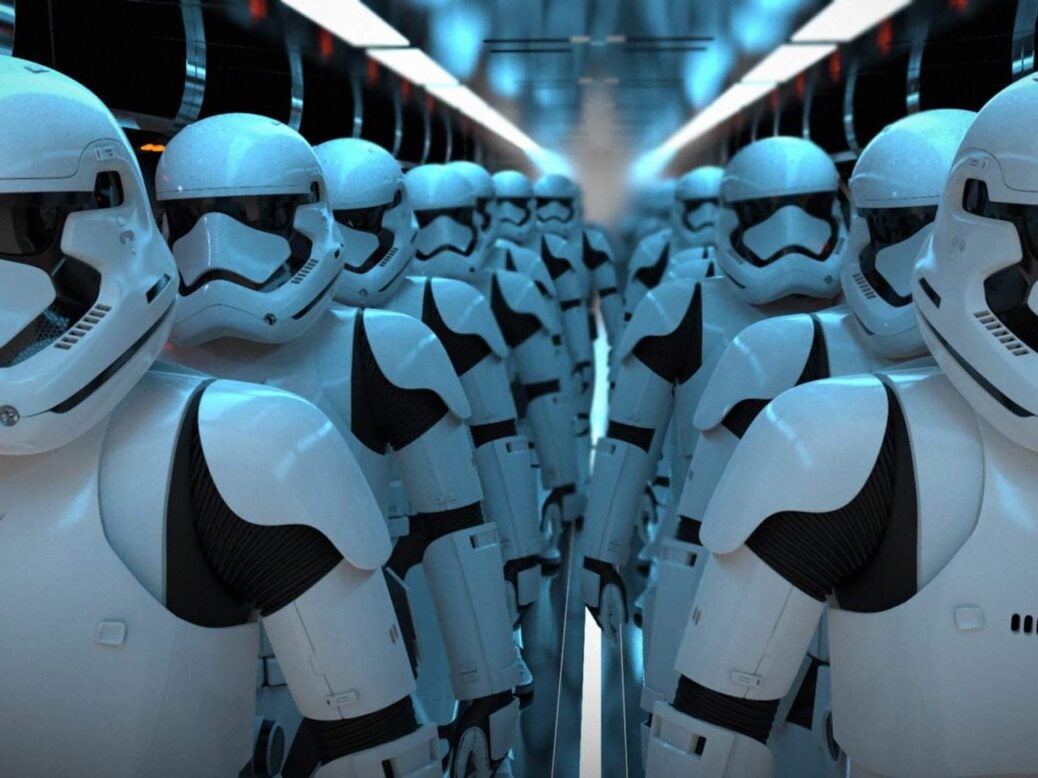
The huge destruction in the latest Star Wars films shines a light on the moral complexity of the franchise, writes Sam Leith
So the other day I took myself off to the cinema to watch The Rise of Skywalker, because I’m a sucker for that sort of thing and I knew that if there was any chance of it being good, that chance would be much increased by seeing it on the big screen.
And towards the end (spoiler alert: the goodies win) that big screen came in handy as a thousand thousand star destroyers, each of them manned by identical stormtroopers, blossomed into orange flame above the Sith planet Exegol. What was the death toll? Half a million, maybe? That seems a conservative estimate.
This massacre was accompanied by swellingly triumphal music, and a good deal of high-fiving and air-punching on the rebel side.
Now, I would no doubt have been high-fiving and air-punching myself, but – call me an old sentimentalist if you will – something slightly caught in my throat. For not half an hour previously, our heroes had met a minor character called Jannah who was a recovering stormtrooper.
She had explained that she and all her fellow stormtroopers had been pressed into imperial service as traumatised orphans, and that they had left the imperial payroll only after summoning the courage to rebel when ordered to fire on unarmed civilians. This touching interlude, of course, deepened our sense of the moral complexity of the Star Wars universe.
But in the grand finale, it did leave you wondering: how many of those merrily blown up above Exegon may not have been fully paid-up fanatics but reluctant child conscripts too? How many of those casualties were damaged, traumatised, and essentially innocent pawns of the fascist First Order? Looked at in that light, it’s slightly like a film that imagines abolishing slavery in the antebellum South by carpet-bombing it.
Or, to take a more modern and alas more plausible example, neutralising the North Korean regime by nuking the country. Obviously, you can’t make an omelette and all that – but it’s a dent in the world-building of the films. It seems to me that dent comes from the fact that Star Wars combines two incompatible modes of storytelling – one ancient, and one more modern. The ancient one – the generator that powers its thrills – is myth.
The oldest stories, from the Old Testament via the Greek legends to the early Westerns, are about heroes bashing villains: the heroes are us, and the villains, essentially dehumanised emanations of a hostile world, are there to get a pasting.
As Tom Holland argues in his new book Dominion, the ancients were pretty relaxed about massacres – as long as it was the other guys getting the sharp end. Until Christianity started speaking up for the weak, the likes of Caesar and Alexander were great men, not war criminals. Star Wars – Christian allegory or no – draws most of its narrative vigour from this mode. That’s what’s under the bonnet. It’s no accident that Stormtroopers all look alike.
But at the same time, modern audiences are accustomed to another literary convention: one that emphasises individual conscience, human complexity, and all that jazz. Where part of the drama is Rey’s Jungian struggle with the Dark Side, where Finn can be a former Stormtrooper, Lando’s old treachery can be redeemed, and Kylo Ren can turn to the light even in his final moments.
That leads you to the very literary position that the line between good and evil runs through the individual heart rather than down the middle of a battlefield.
And it doesn’t sit quite squarely with the us-versus-them mythic mode. If George Lucas does decide to do a Chapter X, then, wouldn’t it be fun to have it in some intergalactic equivalent of The Hague?
Image credit: Dmitrij Leppée
More Sam Leith
Why are we so averse to verse?
A walk through theatreland with Simon Callow
Rana Dasgupta Q&A: How Britain’s JCB launched the ‘Booker Prize for India’






